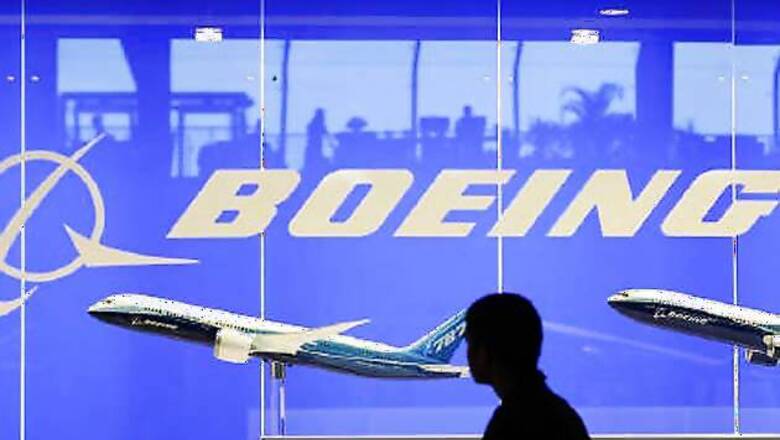
views
Dubai: Boeing has projected a $4.5 trillion market for 34,000 new airplanes over the next 20 years as the current world fleet doubles in size, with robust growth in China, India and other emerging markets.
According to the Boeing 2012 Current Market Outlook (CMO) low cost carriers, with their ability to stimulate traffic with low fares, are growing faster than the market as a whole, and there is also a strong demand to replace older, less fuel-efficient airplanes.
"Robust growth in China, India and other emerging markets is a major factor in the increased deliveries over the next 20 years," the airline said in a statement.
Replacements account for 41 per cent of new deliveries in the forecast, which also states that the market for new airplanes is set to become more geographically balanced in the next two decades.
Asia-Pacific, including China, will continue to lead the way in total airplane deliveries.
"The world's aviation market is broader, deeper and more diverse than we've ever seen it," said Randy Tinseth, vice president of Marketing, Boeing Commercial Airplanes.
"It has proven to be resilient even during some very challenging years and is driving production rate increases across the board".
Airline traffic is forecast to grow at a 5 per cent annual rate over the next two decades, with cargo traffic projected to grow at an annual rate of 5.2 per cent.
The single-aisle market, served by Boeing's 737 and the future 737 MAX, will continue its robust growth. Widebodies, such as Boeing's 747-8, 777 and 787 Dreamliner, will account for almost $2.5 trillion worth of new airplane deliveries with 40 per cent of the demand for these long-range airplanes coming from Asian airlines.
As the cargo market remains sluggish, Boeing has revised its projection downward for freighters over the next 20 years.
Still, the world freighter fleet is projected to nearly double from 1,740 aircraft today to 3,200 at the end of the forecast period.
Additions to the fleet will include 940 new-production freighters (market value of $250 billion) and 1,820 airplanes converted from passenger models.

















Comments
0 comment